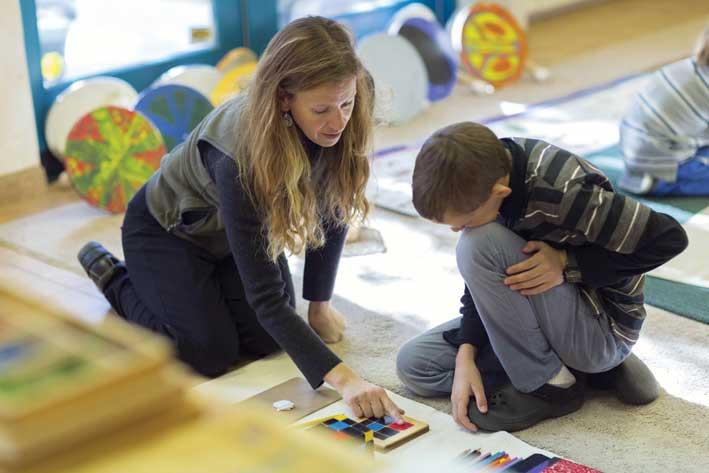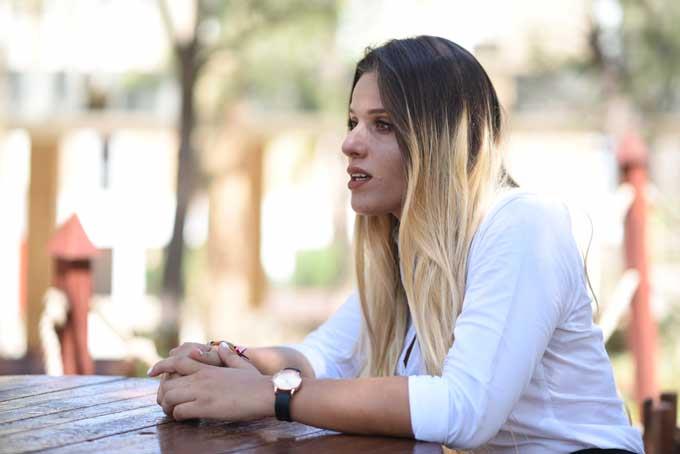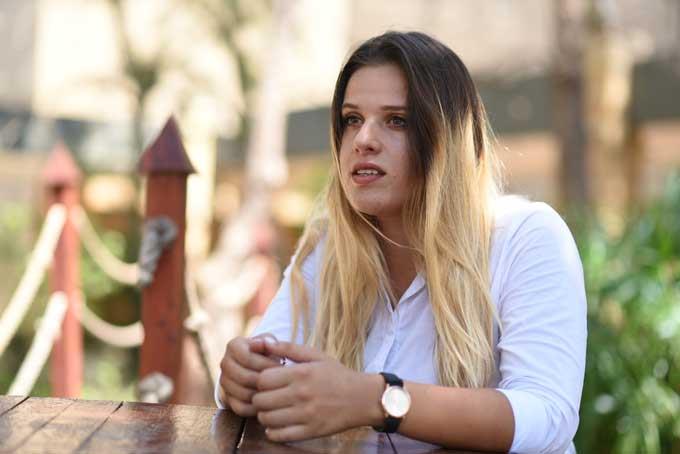"My brother has got his whole life ahead of him, so why are we treating people with autism like they're not able to work. There is nothing at the moment that caters for autistic people of his age, so all they can do is sit at home and wait," she said.
Jessica described the monotonous regime and the lack of any programmes or job opportunities for autistic people who are not high functioning. "The real problems begin after the school leaving age or at least after 18 years of age because Maltese institutions for people with autism, who aren't high functioning, end there. Actually, it is the minority who are high functioning with the vast majority who have more serious problems and need one-to-one attention."
Autism is a neurodevelopmental disorder characterised by impaired social interaction, impaired verbal and non-verbal communication, and restricted and repetitive behaviour. Parents usually notice signs in the first two years of their child's life. It is not a black and white concept; in fact, autism must be looked at as a spectrum, in which some are classified as high function, others non-verbal and so on. No case is the same; all are different so every case needs to be treated separately.
"There is no black or white cut off for autism. The vast majority of people with autism are in fact non-verbal, which in itself is already a setback because there are some who can actually speak maybe not whole sentences but are capable of speech," Jessica added.
"They would understand everything you say but it's hard for them to find a way how to answer and obviously that limits them in our normal society. It limits them from communicating with their peers, limits them from studying or working and therefore it's difficult to truly live a daily normal life."

(file photo)
Learning Support Assistants (LSA), also play a pivotal role in the life of child and young adult with autism. Jessica described how some LSAs do an amazing job while others are not totally dedicated it. She emphasised the importance of an LSA being fully qualified and not just simply seeing the job as a "part-time thing they can simply shrug off"
"LSAs play a very integral part when an autistic child is growing up as they lay the foundations on how to behave in society. Just to put it into perspective, when we are about to cross a road we see the traffic lights, we see the people, we see the cars. For someone with autism that is secondary, they will focus on just one thing and everything else is secondary. For example if they focus on the traffic lights, for them that's it, there is no car or any other obstacles, they will cross. Therefore, an LSA is there to guide them and show them these other dangers. They teach them cognitive development."
"The issue is when you have an LSA who isn't fully qualified. The problem with autism is that if you move one step forward and then go two steps back, you can never get those steps back" Jessica explained.
However, the problems truly start when they enter adulthood. "They wake up and they have nothing to look forward to. The rest of us get up, go to school or work, we go out with our friends and so on; they have nothing of the sort," Jessica said.
She also described how most families try their best to make sure their child does not spend all their time at home, adding that many autistic young people should have the opportunity to contribute something to society.
"Many just wake up and spend the whole day at home and yes some families try to take their children out but most parents both work and really it's more because they want them to do something for themselves too."
Jessica has already spoken to politicians specifically about special needs people taking the last election as an opportunity to pressure both political parties; yet these appeared to just be electoral promises since not much occurred after that. "I am currently in contact with people from the National Commission person of Disability, who took on board what I said and hopefully we can get things done" she said.

The solution?
Jessica believes a solution may lie in a proposal she drafted with a programme that she has put forward to the National Commission for Persons with Disability (the KNPD).
"I proposed a five-day programme to the KNPD. In my opinion, three days out of the five need to be dedicated to work placements, something that ETC and Job Plus do offer. However, what they fail to mention is that they only cater for high functioning individuals, which means everyone else is left with nothing. This has to be open to all and it is a right for all. Just because someone is non-verbal does not mean s/he cannot do tasks. I know of non-verbal young people who were able to help out in garden centres and it was really wonderful to see the satisfaction that it gives them. These job placements obviously need an LSA with them. The other two days would be cognitive development; life-learning skills, such as simple things like eating toast, and certain basics we take for granted. If they could actually acquire those sorts of skills you'd be giving them independence."
Jessica outlined her proposal for the programme saying: "It is the core of such problems that need to be professionally and sustainably addressed by means of a well-structured and implemented programme, as is done in most EU countries and worldwide. The proposed project features a five-day programme, three of which would involve four-hour paid work placements in partnership with local businesses, hand in hand with our local national institution on employment, ETC and JobsPlus. Qualified and trained LSAs would accompany the enrolees, providing the necessary support with no discrimination whatsoever to the level of functionality of the individual in question, subject to the Employment and Equal Opportunities Act. The remaining two days would be dedicated to social group activities/outings/skill development courses/independent living courses organized by the respective organization committee in order to provide an inclusive and, above all, a holistic programme where enrolees not only feel a sense of worth in the working world but also enrich their developmental capacity for future sustainability.
"There is no doubt that this is only the beginning and that more needs to be done, one prime example being the implementation of sustainable independent living where persons with disability can exercise independence and autonomy with the rightfully deserved necessary help."

Currently, more attention has been given to physical disability and the institutions and programmes available for mental health is severely lacking, Jessica believes. With places like the Resource Centre still having waiting lists and not enough LSAs being provided, this leaves many with nothing to do but simply wait. The former Parliamentary Secretary for persons with disabilities, Justyne Caruana, had introduced the idea of a Hub in Naxxar which would be dedicated to people with mental disabilities. However, this was shut down by former KNPD president Joseph Camilleri who said the scheme fulfilled the needs not of persons with a disability but of their parents, and demeaned intellectually disabled people with the same aspirations as their peers.
Jessica explained that all those who have mental disabilities are still human and deserve a chance to have some sort of routine. "How can someone be on a waiting list for a right they truly deserve because the government doesn't provide anything else? There is nothing in place that caters for all programmes, and more importantly, no independent living strategy. In other countries, they have whole systems for people with autism and right now here in Malta, people with autism are not being given what they have a right to."
She added that parents who have children with disabilities need to be involved in the decision-making process of these programmes. "How can someone who is high up in an institution know what it's like? We want to be involved because they do not know what I need unless they have a daughter or relative who also has autism. They need to communicate better with families to see what they actually need. Anyone can increase a disability pension but it's not money we want, what we want is to give them a normal life as possible. This is long overdue and something needs to be done."